Basque Eta: Spain's frozen peace process
- Published
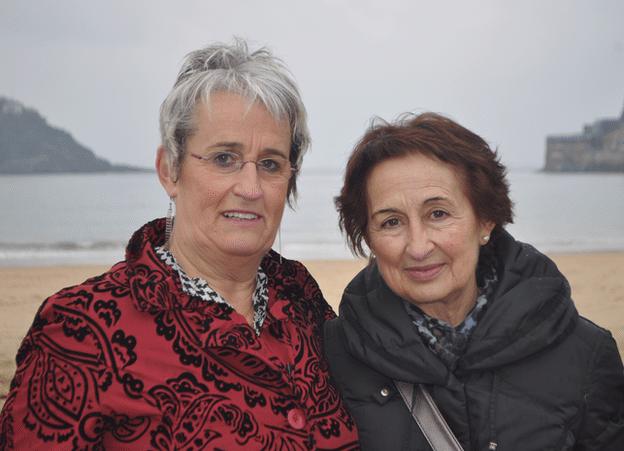
Axun Lasa (left) and Mari Carmen Hernandez lost loved ones in the conflict
Spain is obliged to release dozens of convicted Basque militants after a ruling by the European Court of Human Rights (ECHR), and is not happy about it. Yet the move may help reconciliation in the Basque Country.
Nowadays the Spanish Basque Country is more famous for its mouth-watering food and incessant rain than for kidnappings, shootings and bombings.
But the violence of the recent past still casts a shadow over modern Spain, while the process of reconciliation in the Basque Country moves very slowly on.
Eta announced a permanent ceasefire just over two years ago.
Events since then have been shaped by the fact that Spain's government is not a player in what barely resembles a "peace process".
Officially, Eta and the Spanish government do not talk.
In fact the current Popular Party government of Mariano Rajoy is committed to the "destruction" of Eta, which Spanish ministers believe they are close to achieving: some 40 alleged members of Eta have been arrested since December 2011.
The group is already weak. Paul Rios, who leads Lokarri, a citizen-led Basque group working for peace and reconciliation, believes that because it so weak, there is little incentive for the Spanish government to enter talks.
Mr Rios believes that Eta now only has around 50 members who are not in prison.
New dynamic
But former militants will soon be on the streets again, after the ECHR decided that a 2006 ruling by Spain's High Court could not be used retrospectively.
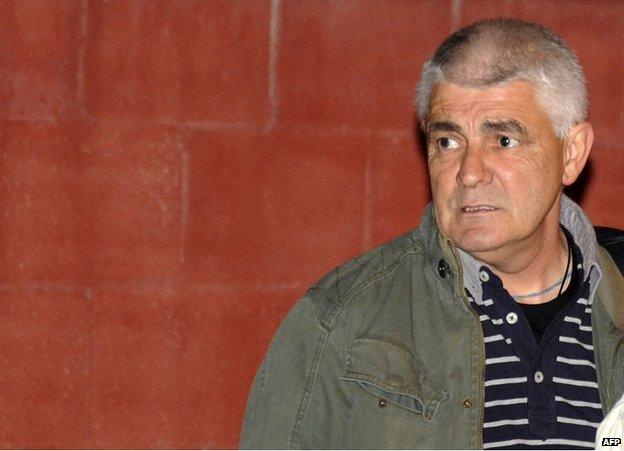
Eta member Jose Luis Lopez Ruiz, also known as Kubati, was one of those released in November
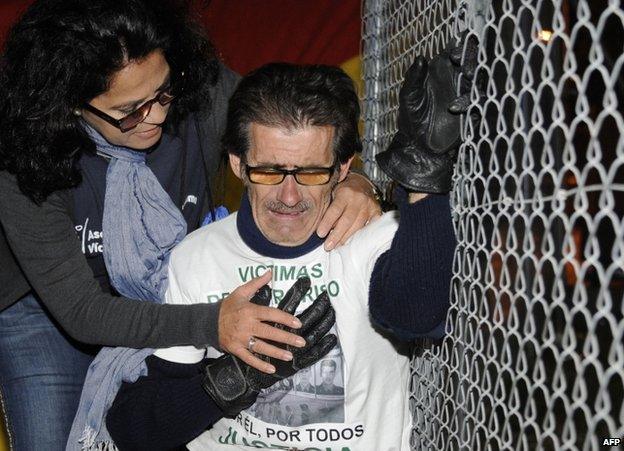
The prisoner releases have caused hurt among those affected by Eta attacks.
The ruling had been used by Spain to keep Eta prisoners behind bars by exempting them from early release.
However, because many Eta prisoners were convicted before 2006, the ruling means that at least 56 must now be released.
The October release of Ines del Rio, a convicted multiple murderer, who served 26 years for several bombings which killed a total of 24 people in the 1980s, caused fury and disbelief.
Angry scenes have greeted other Eta prisoners leaving jail in various parts of the country, and in Madrid, thousands gathered, including many of Eta's victims, to protest against the ECHR ruling.
Several leading Spanish politicians on the right attended the demonstration.
As author and journalist Giles Tremlett puts it, opposition to Eta is part of the genetic make-up of Spain's political right, and the current government of Mariano Rajoy.
However he believes the implication of the ECHR ruling could be "quite positive".
Some people in the government, he suspects, are secretly glad that the doctrine was thrown out not by them, but by an independent court.
"But they can't say it publicly because the right wing of a very broad right-wing party would find that very difficult to swallow," he adds.
Unlikely friends
Away from the turmoil of recent weeks, other people with different backgrounds are working quietly to promote peace and reconciliation in the Basque Country.
Axun Lasa and Mari Carmen Hernandez are unlikely friends.
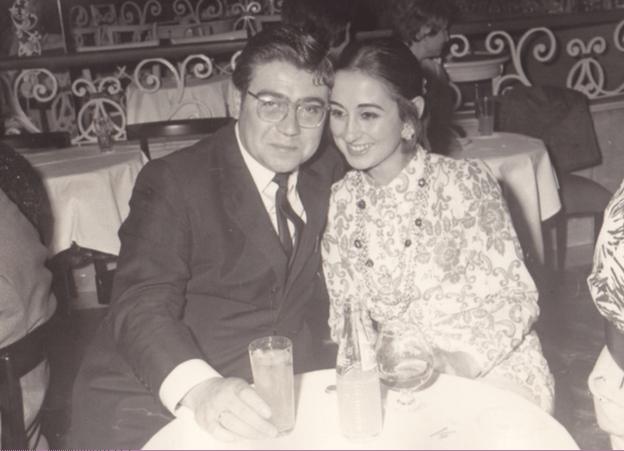
Ms Carmen's husband was killed by Eta 13 years ago
Ms Carmen's husband, Jesus Maria Pedrosa, was a Popular Party councillor in the Basque town of Durango. He was killed by Eta in June 2000.
"They shot him near where we live, with one bullet in the head," she says. "I was listening to the radio at home and straightaway I knew it was him."
Ms Lasa's youngest brother, Juan Antonio Lasa, was a member of Eta.
Members of a state-sponsored paramilitary group, known as Gal, abducted, tortured and killed him and his friend and fellow Eta member Jose Ignacio Zabala.
"In 1983 we had the terrible news that he was missing," she says. "Our nightmare went on for ages."
The two men's remains were found in Alicante in 1985 but only identified 10 years later.
'So many suffered'
Ms Lasa and Ms Carmen first met in 2007 on a trip to Northern Ireland, organised by the Basque authorities to try to foster reconciliation by victims on both sides of the divide.
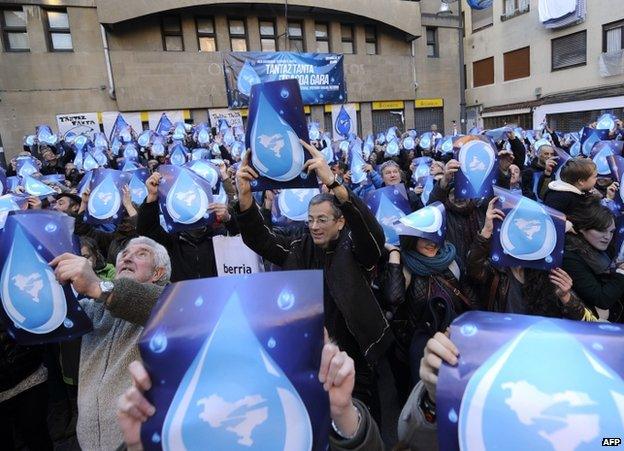
A "teardrop" campaign is calling for prisoners to be moved closer to home
According to a study by the Basque government, there are around 900 victims of Eta violence and around 200 victims of violence perpetrated by the police or other groups linked to the Spanish security services.
Ms Lasa wants the Spanish state to acknowledge this.
"All the victims need to be remembered and recognised," she says. "So many have suffered on all sides."
And despite losing her husband, Mari Carmen supports the ECHR's decision.
The process of reconciliation remains slow
She believes it is "just" that people who have completed their sentences, "however bloody their crimes", should be released.
However she, too, wants more recognition of the damage done in the past.
"What hurts me, is people who leave [prison] without recognising and taking responsibility for the irreparable damage they have done, to society," she says.
Process stalled
However away from the work by people like Ms Lasa and Ms Carmen, there are unresolved issues that stand in the way of the Basque Country's formal process of reconciliation moving on.
The non-violent pro-separatist Basque political parties which have occupied the political ground once held by Eta and its political wing, want Eta prisoners to be relocated to Basque jails, so they are nearer their families.
However the Spanish government is opposed to this and with little, or no, formal dialogue, the "peace process" has stalled. There is no sign of Eta getting ready to decommission arms or disband.
That may not be possible until there is political change in Madrid or until Eta is, as Spain's interior minister puts it, "destroyed".